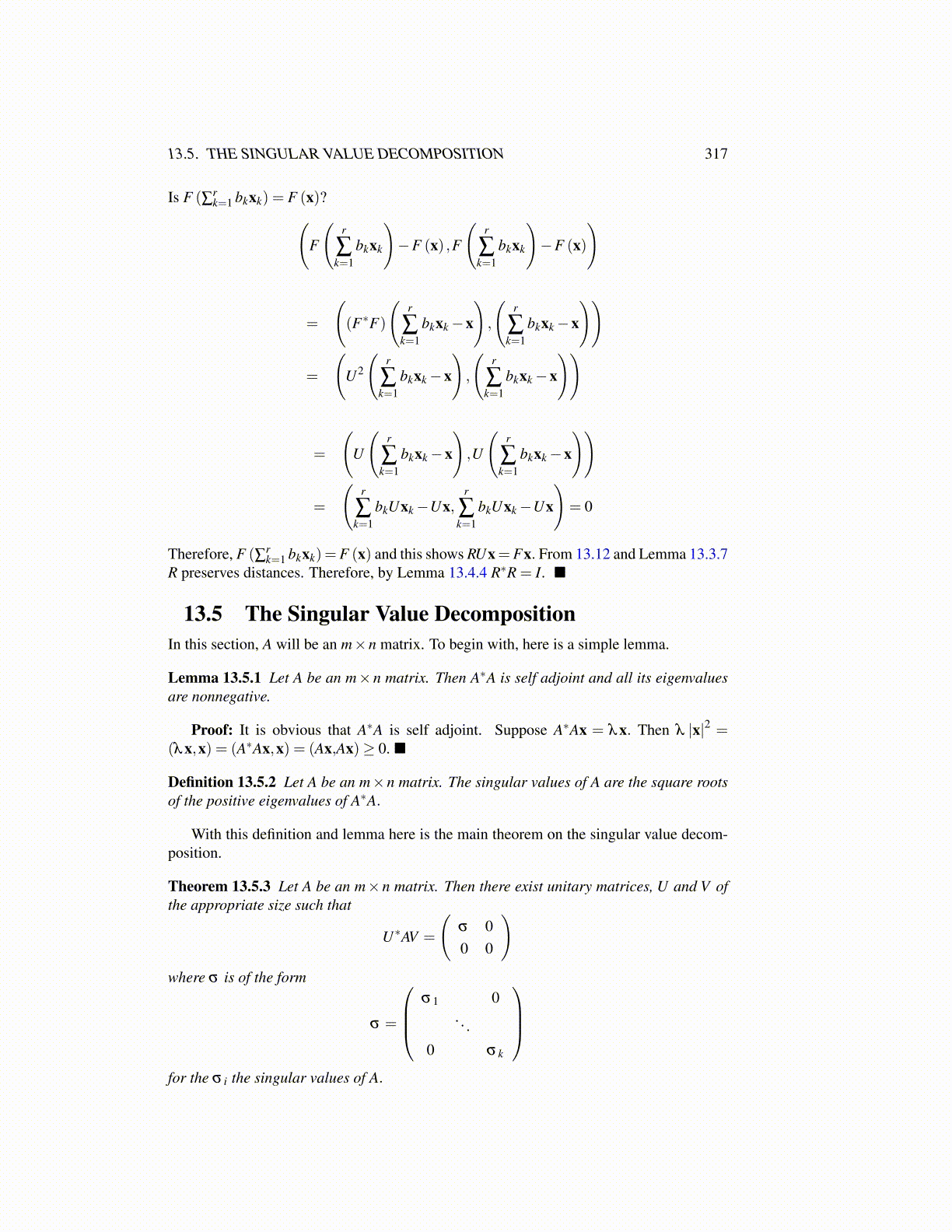
13.5. THE SINGULAR VALUE DECOMPOSITION 317
Is F (∑rk=1 bkxk) = F (x)?(
F
(r
∑k=1
bkxk
)−F (x) ,F
(r
∑k=1
bkxk
)−F (x)
)
=
((F∗F)
(r
∑k=1
bkxk−x
),
(r
∑k=1
bkxk−x
))
=
(U2
(r
∑k=1
bkxk−x
),
(r
∑k=1
bkxk−x
))
=
(U
(r
∑k=1
bkxk−x
),U
(r
∑k=1
bkxk−x
))
=
(r
∑k=1
bkUxk−Ux,r
∑k=1
bkUxk−Ux
)= 0
Therefore, F (∑rk=1 bkxk)=F (x) and this shows RUx=Fx. From 13.12 and Lemma 13.3.7
R preserves distances. Therefore, by Lemma 13.4.4 R∗R = I. ■
13.5 The Singular Value DecompositionIn this section, A will be an m×n matrix. To begin with, here is a simple lemma.
Lemma 13.5.1 Let A be an m×n matrix. Then A∗A is self adjoint and all its eigenvaluesare nonnegative.
Proof: It is obvious that A∗A is self adjoint. Suppose A∗Ax = λx. Then λ |x|2 =(λx,x) = (A∗Ax,x) = (Ax,Ax)≥ 0. ■
Definition 13.5.2 Let A be an m×n matrix. The singular values of A are the square rootsof the positive eigenvalues of A∗A.
With this definition and lemma here is the main theorem on the singular value decom-position.
Theorem 13.5.3 Let A be an m×n matrix. Then there exist unitary matrices, U and V ofthe appropriate size such that
U∗AV =
(σ 00 0
)where σ is of the form
σ =
σ1 0
. . .
0 σ k
for the σ i the singular values of A.